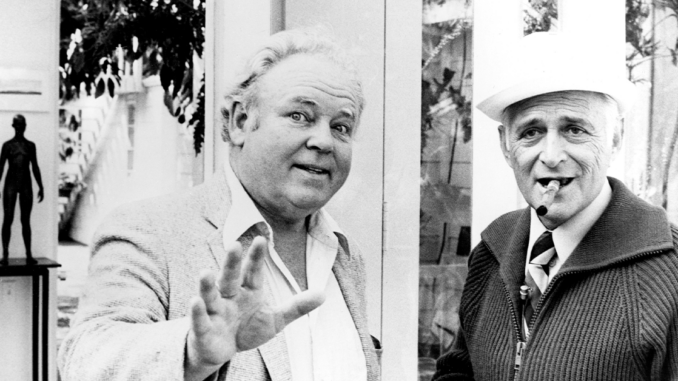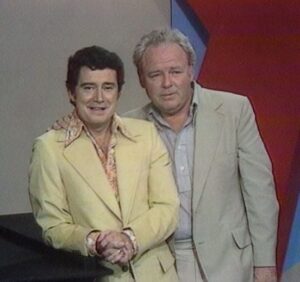
“I think most people are nostalgic for something they’ve never known.”
Let the record show that we are more than willing to listen to Norman Lear’s opinions on practically anything. The man is responsible for some of our favorite television shows. We’d follow a cake recipe if he recommended it.
But as a veteran of sitcoms, Lear was usually speaking on what could typically be considered his “wheelhouse,” and that’s television. With all his years of industry experience, Lear spoke to the New York Times about the defining differences between television in the 1970s and the 1980s.
“The world has turned 180 degrees in the last six years,” Lear said. “1984 is a foreign country.”
Lear also believed that the things the public valued in their lives had shifted, and that television should reflect these shifting priorities.

“The seventies were a decade of issues, conflict, and confrontation. I feel the theme of the 80s is the desire and need for belonging.”
While creating All in the Family, Lear was holding a mirror up to America, showing them the sort of families they were aware of, but had never seen represented on screen. The Bunker family shouted, fought, and flushed the toilet like any other typical American family. It was refreshing for audiences to see pieces of themselves on television.
By the 1980s, however, Lear seemed to be gravitating more toward wish fulfillment for the audience, instead giving them what they’d like to see, rather than what they were, himself included. “I feel like people want to be part of a big family again,” Lear said.
“I go by my gut instinct. I think most people are nostalgic for something they’ve never known. The airplane and telephone were supposed to make the world smaller. They’ve made it bigger. If you had to travel four days to visit , you stayed a week. Now we drop in and out of each other’s lives for a few hours.”